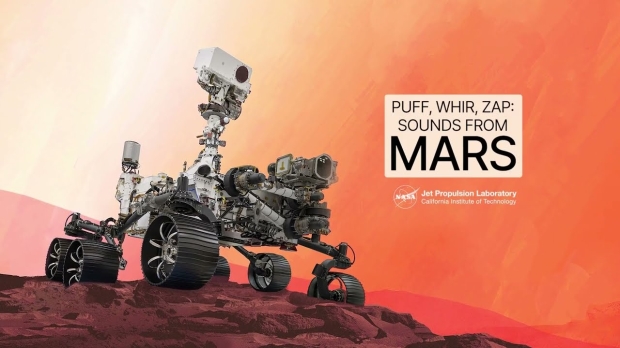A study on the speeds of sound on Mars titled "In situ recording of Mars soundscape" has been published in the journal Nature.
The Perseverance rover on Mars has recorded over five hours of sound using its microphones after landing on Mars in February last year. Perseverance recorded sounds made by the flying Ingenuity helicopter that accompanies the rover and sounds from its laser that it uses to analyze the chemical composition of Martian rock samples.
The research team found that sound travels roughly 240 meters per second on Mars, compared to 340 meters per second on Earth. Mars is expected to have a slower speed of sound, as its atmosphere is about a hundred times thinner than Earth's, with carbon dioxide making up 95% of it compared to 0.04% carbon dioxide in Earth's atmosphere, which also results in sounds becoming roughly 20 decibels weaker.
The researchers also determined two speeds of sound, one for higher frequencies and one for lower frequencies. The speed of sound for the lower frequency of the Ingenuity helicopter's rotors was 240 meters per second, while the higher frequency of Perseverance's laser was determined to be 250 meters per second.
"On Earth, the sounds from an orchestra reach you at the same speed, whether they are low or high. But imagine on Mars, if you are a little far from the stage, there will be a big delay," said Sylvestre Maurice, the study's main author.
You can read more from the study here.




